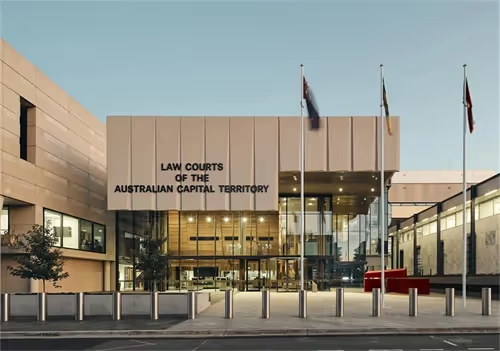Goods in Custody Offences

Defending Goods in Custody Charges
Facing a goods in custody charge can have serious consequences, including imprisonment or fines. At Brightstone Defence, we provide expert guidance and representation to help you navigate the legal system.
Our experience includes:
- Assessing whether you had lawful possession of the items.
- Identifying and applying potential defences such as claim of right or honest and reasonable belief.
- Representing clients to seek non-conviction outcomes or reduced penalties.
If you are charged with goods in custody, contact Brightstone Defence for tailored legal advice and representation.
What is a goods in custody offence?
The offence of goods in custody is legislated under section 527C (1) of the Crimes Act 1900 (NSW). It refers to being in possession of property that is suspected of being stolen or unlawfully obtained. This includes:
- Holding or transporting stolen items
- Having items in a car, a bag or a property you control
- Possessing tools or goods relating to a theft or break in
Elements the Prosecution Must Prove
Possible Defences
When charged with goods in custody, there are a number of legal arguments that can be used to challenge the prosecution’s case. Your lawyer can assess the circumstances and identify which defences may apply to your situation, increasing the chances of a favourable outcome.
- Lawful possession – e.g. You purchased the property
- No reasonable suspicion
- Claim of right
- Honest and reasonable belief
- Lack of possession
- Necessity
- Duress
Potential Penalties
Dependant on the value of the goods and your prior criminal history, the maximum penalty for this offence is:
Other types of possible penalties include:
- Section 10 dismissal
- Conditional release order (CRO) with or without conviction
- Community correction order (CCO)
- Intensive Corrections Order (ICO)
- Fine

Legal Process
& Options
The criminal justice system involves complex and confusing processes. Here at Brightstone Defence we specialise in representing clients for their best possible outcome.
Pleading
Not Guilty
You may wish to plead not guilty, meaning that you do not accept the responsibility for the charge, which may mean you:
- Did not know the goods were stolen
- You had permission to possess these items
- These items were yours or lawfully obtained
- There is insufficient evidence or unlawful police conduct
If you are found not guilty, the charge will be dismissed, and you will have no conviction.
Pleading
Guilty
Entering a plea of guilty means that you accept that you were in possession of unlawfully obtained goods. Your lawyer can argue for a lesser penalty if you wish to enter this plea. It is important to obtain legal advice before entering a plea in order to know the best possible options for your case.
Arson is the intentional destruction or damage of property using fire, whilst recklessly setting a fire is a less culpable offence where the damage was reasonably foreseeable.
Yes, you can be charged even if the property is jointly owned or you had no ownership at all.
Depending on the circumstances of your case, if the fire has caused significant damage or danger to life, a sentence of imprisonment is well within the sentencing scope. However, if the objective seriousness is low, alternative penalties are available.
The term “knowingly” means that you either knew or strongly suspected that the property was stolen at the time that you received or was dealing with it.
Yes, you do not need to steal the goods to be found guilty of this offence. Receiving, disposing or attempting to dispose of stolen goods is enough.
If you genuinely did not know that the goods were stolen and there are no reasonable grounds to suspect that you knew, this may be a valid defence to your case.
If you are found guilty or convicted of this offence, you will most likely receive a criminal record. However, it is important to receive legal advice for representation as your lawyer may argue for a non-conviction in order to avoid a criminal record. Contact Brightstone Defence to know your rights and options.
You are not required to explain where the items came from but anything you do or say can be used against you in court. Your best option is to remain silent and to avoid answering questions without legal advice. Contact Brightstone Defence for tailored legal advice for your case.
Yes, the police only need to have a reasonable suspicion that the goods were stolen or unlawfully obtained, not that they actually were.
If you are convicted of this offence, yes. However, your lawyer may argue for a non-conviction outcome such as a section 10 dismissal or a Conditional Release Order (Without Conviction), depending on your circumstances.
“Proceeds of crime” refers to property or benefits derived directly or indirectly from the commission of a criminal offence. This can include but not limited to:
- Money from drug trafficking
- Vehicles or homes purchased using illicit funds
- Cryptocurrency from fraud or scams
The law allows for the seizure, forfeiture, and confiscation of such assets, even without a criminal conviction in some cases.
Under section 193B of the Crimes Act 1900 (NSW), a person commits a money laundering offence if they:
- Knowingly deal with the proceeds of crime, and
- Intend to conceal its origin.
Under s 193A, to "deal with" includes:
- Receiving, possessing, concealing, disposing of, or using the proceeds;
- Engaging in transactions involving tainted property;
- Facilitating transfers through third parties or accounts.
Even passive conduct (e.g. allowing use of a bank account) can fall under the scope of this provision.
- Common property-related offences include:
- AUSTRAC monitors financial transactions and reports suspicious activity.
- NSW Police, AFP, and DPP work together to:
- Initiate proceeds of crime proceedings,
- Freeze assets,
- Coordinate criminal investigations into fraud, drug, and property offences.
Yes. If property is:
- Jointly owned but linked to crime,
- Transferred to third parties (including family) to avoid confiscation, or
- Used to facilitate criminal conduct,
it may be subject to forfeiture orders, unless an innocent interest can be proven under the relevant Act.
- Yes
If your property is restrained or subject to forfeiture under the Criminal Assets Recovery Act 1990 (NSW), our team can contest the orders, argue innocent ownership, and protect your financial interests. We have experience handling restraining orders, forfeiture orders, and unexplained wealth proceedings.
Do not answer questions or provide documents without first speaking to a lawyer. Contact Brightstone Defence immediately so we can step in, protect your rights, and respond on your behalf.
- Yes
Proceeds of crime and money laundering offences are treated very seriously under both NSW and Commonwealth law. Without legal advice, you risk making admissions or mistakes that could damage your case. A specialised criminal defence lawyer can guide you from the first police interview through to court representation.
We examine the evidence in detail, challenge whether the property truly qualifies as “proceeds of crime”, and test the prosecution’s ability to prove knowledge or intent. Our lawyers also negotiate with the prosecution to reduce or withdraw charges where possible.
You are not required to explain where the items came from but anything you do or say can be used against you in court. Your best option is to remain silent and to avoid answering questions without legal advice. Contact Brightstone Defence for tailored legal advice for your case.
Yes, the police only need to have a reasonable suspicion that the goods were stolen or unlawfully obtained, not that they actually were.
If you are convicted of this offence, yes. However, your lawyer may argue for a non-conviction outcome such as a section 10 dismissal or a Conditional Release Order (Without Conviction), depending on your circumstances.
- Yes
If your property is restrained or subject to forfeiture under the Criminal Assets Recovery Act 1990 (NSW), our team can contest the orders, argue innocent ownership, and protect your financial interests. We have experience handling restraining orders, forfeiture orders, and unexplained wealth proceedings.
Do not answer questions or provide documents without first speaking to a lawyer. Contact Brightstone Defence immediately so we can step in, protect your rights, and respond on your behalf.
- Yes
Proceeds of crime and money laundering offences are treated very seriously under both NSW and Commonwealth law. Without legal advice, you risk making admissions or mistakes that could damage your case. A specialised criminal defence lawyer can guide you from the first police interview through to court representation.
We examine the evidence in detail, challenge whether the property truly qualifies as “proceeds of crime”, and test the prosecution’s ability to prove knowledge or intent. Our lawyers also negotiate with the prosecution to reduce or withdraw charges where possible.
SUCCESS CASES & ARTICLES
Brightstone Defence delivers focused criminal defence services year-round and has built a strong track record of successful outcomes.
Meet our lawyers
WORLD CLASS
REPRESENTATION
100+ 5 Star Reviews
Personalised legal strategies tailored to each case
Recognised leaders in criminal defence law
Free initial consultation and case evaluation
Proven success in high-stakes and complex cases
Get AN instant estimated Quote
and a free consultation session
Facing criminal charges? Our experienced criminal defence lawyers are here to help. Book your free consultation now to discuss your case and understand your options.








